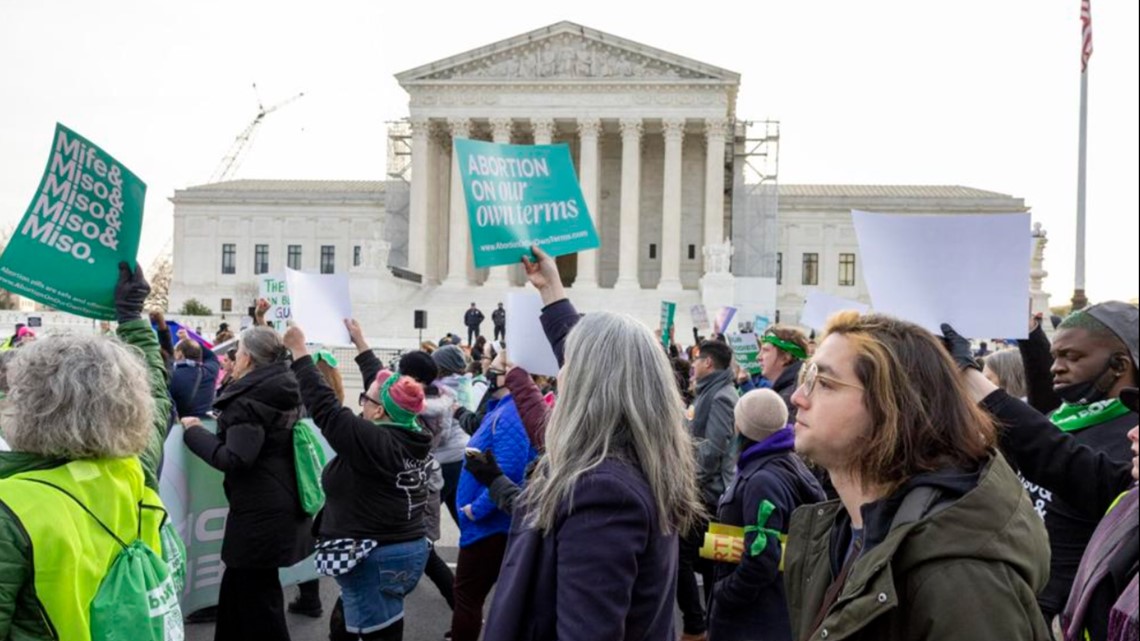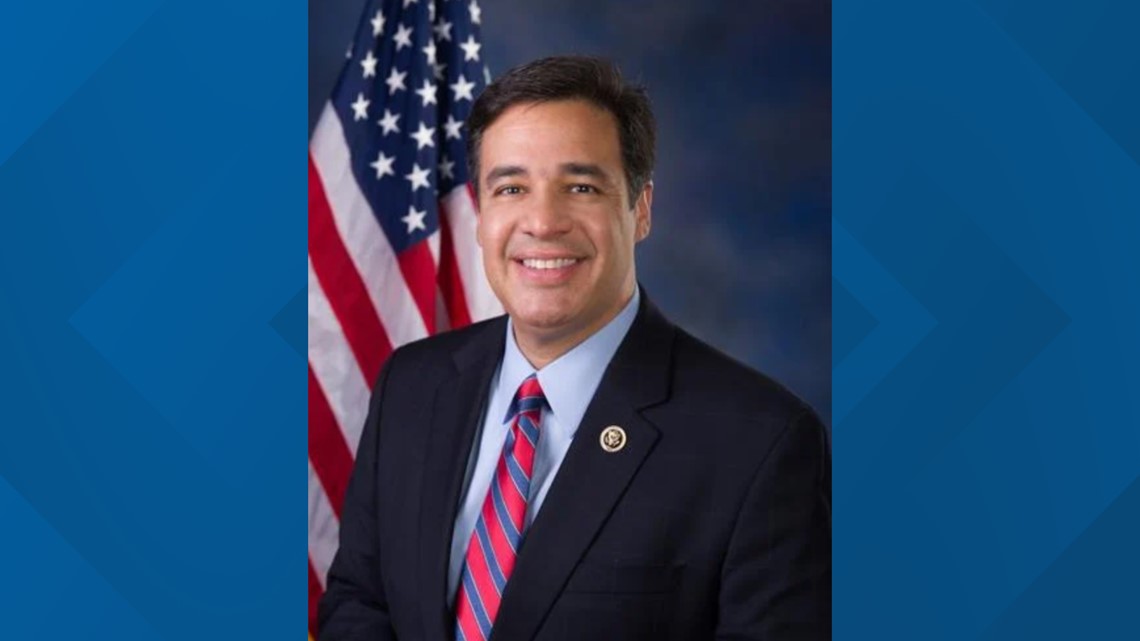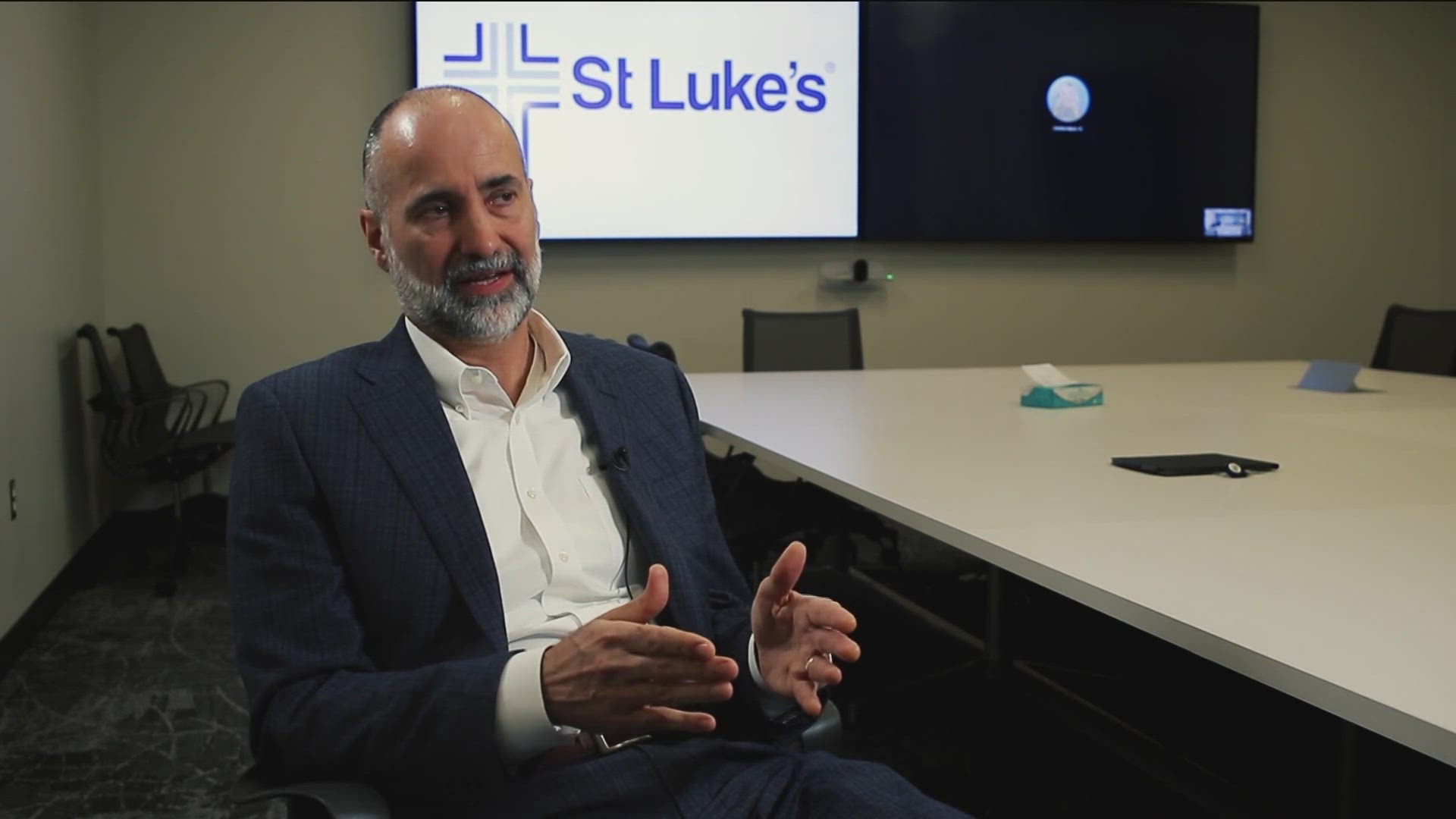BOISE, Idaho — This article originally appeared in the Idaho Press.
Idaho attorneys will go before the U.S. Supreme Court on Wednesday morning in a case that will determine the extent to which the state’s abortion ban applies, and could also have legal implications for abortion bans across the nation.
The U.S. Department of Justice is arguing that Idaho’s law — and its lack of exemption to protect the health of the mother — violates the Emergency Medical Treatment and Labor Act, or EMTALA, a federal law that requires medical providers at facilities that receive Medicare funds treat and stabilize anyone for an emergency.
“In some cases, the medically necessary care is termination of the pregnancy,” wrote DOJ Solicitor General Elizabeth Prelogar in court filings. ”And in those limited but critically important circumstances, EMTALA requires the hospital to offer that care.”
The state is arguing that EMTALA doesn’t supersede state law and that it doesn’t require abortion as a procedure in emergencies. Attorneys argued that the federal law requires care be provided that’s ”available” to stabilize patients, but that abortion wouldn’t be considered “available” if it’s illegal in the state.
“In short, the administration’s attempt to construct an abortion mandate out of a statute that does not even mention it is an impossible task,” a court filing submitted by Idaho said.
A ruling won’t just affect the Gem State; it could impact other abortion laws that are similarly written throughout the U.S.
“Whatever the ruling is, it’s going to apply nationwide,” said Jim Jones, former Idaho attorney general and state supreme court justice.


Federal District Court Judge Lynn Winmill had placed the law in regard to emergency situations under a narrow injunction, meaning the felony penalties to health care providers wouldn’t apply in these emergencies.
Idaho, along with attorneys from the religious legal group Alliance Defending Freedom, and Cooper & Kirk, argued that Winmill’s injunction “effectively turns EMTALA’s protection for the uninsured into a federal super-statute on the issue of abortion.”
A federal Ninth Circuit Court of Appeals panel overturned the injunction, then another Ninth Circuit panel quickly reversed course and reinstated the injunction. The Supreme Court in January removed the injunction and allowed the ban to fully go in effect while the case proceeds.
In court filings, attorneys for Idaho cited a federal Court of Appeals for Fifth Circuit decision on the Texas abortion law, which found that EMTALA did not require abortions in emergency cases. This case has also been appealed to the Supreme Court.
Idaho doesn’t fall under the Fifth Circuit’s jurisdiction, but if the Supreme Court rules against the Gem State, it would also affect Texas’ ban and any others that don’t include health exemptions. There are 14 states that ban abortion at all stages of pregnancy, and 22 Republican-controlled states filed court documents in support of Idaho in the case.
Idaho’s law includes exemptions to prevent the death of the mother and in cases of rape or incest with a police report and within the first trimester. A 2023 bill also added to the law that the definition of abortion does not include removing a dead fetus, removing an ectopic or molar pregnancy or treating a woman who is no longer pregnant.
Health care providers have said that the legislation wasn’t adequate to cover the range of complications that could occur during pregnancy and might require the pregnancy to be terminated. Physicians face a felony penalty and prison sentence for violating the law.
In support of keeping the injunction on the law in place, St. Luke’s Health System filed an amicus brief, which is an informational document for parties outside the lawsuit that may be used by courts.
“In some critical cases, termination of a clinically diagnoseable pregnancy is the standard of care necessary to stabilize a patient’s emergency medical condition,” the court document states. “In many such cases, absent termination, the patient may experience severe consequences short of death that are nonetheless irreparable. These include loss of reproductive organs and fertility, loss of other organs, permanent disability, and severe pain, among others. … This conflict is not hypothetical: It is very real, and the consequences of § 18-622 (the felony abortion ban) will be grave.”
St. Luke’s said that it has had six air transports in the past four months out of the hospital system for pregnancy complications, which is an increase from its one transport in all of 2023, the Idaho Capital Sun reported.
Idaho Democratic Party Chair Lauren Necochea on Tuesday condemned the GOP for challenging the case.


“Idaho’s Republican legislative leadership, Republican attorney general, and entire Republican Congressional Delegation are in lockstep asking the Supreme Court to continue the prosecution of doctors and nurses who intervene in medical emergencies,” Necochea said in an emailed statement. “Together, these top GOP leaders are demonstrating that there is zero room in today’s Idaho Republican Party for compassion or concern for the health of women. Without federal protections for emergency care, doctors are advising pregnant patients to get life-flight insurance. Idaho is not a safe place to raise a family.”
Prominent Idaho anti-abortion advocate David Ripley, of Idaho Chooses Life, told the Idaho Press that he believes the state’s ban is “the best law in the country” and argued it doesn’t need any more exemptions. Ripley was a principal author of the law.
“I think this lawsuit from Joe Biden is driven by the politics that he’s coping with,” Ripley said. “And it’s a pretty desperate attempt to re-federalize the issue.”
Idaho Attorney General Raúl Labrador will attend Wednesday’s hearing; the state will be represented by Solicitor General Josh Turner.


“Idaho’s Defense of Life Act is perfectly consistent with the federal Emergency Medical Treatment and Active Labor Act, which provides explicit protections for ‘unborn children’ in four separate places,” Labrador said in a statement. “But the Biden administration is trying to use one life-affirming law to invalidate another. We are asking the Supreme Court to end the administration’s unlawful overreach and to respect the decision of the people of Idaho to safeguard the lives of women and their unborn children.”
The decision may also have implications on the 2024 election.
Jones underscored that the court decision to overturn Roe v Wade was likely a big factor in several elections that went in Democrats’ favor.
“They have to understand that the same calculus is at play here,” Jones said. “... I’m not saying that the court is going to be driven by that, but they will certainly have that on their minds.”
The hearing starts at 8 a.m. Mountain Time. A decision is expected this summer.
This article originally appeared in the Idaho Press, read more on IdahoPress.com.
Watch more Local News:
See the latest news from around the Treasure Valley and the Gem State in our YouTube playlist:
HERE ARE MORE WAYS TO GET NEWS FROM KTVB:
Download the KTVB News Mobile App
Apple iOS: Click here to download
Google Play: Click here to download
Watch news reports for FREE on YouTube: KTVB YouTube channel
Stream Live for FREE on ROKU: Add the channel from the ROKU store or by searching 'KTVB'.
Stream Live for FREE on FIRE TV: Search ‘KTVB’ and click ‘Get’ to download.

